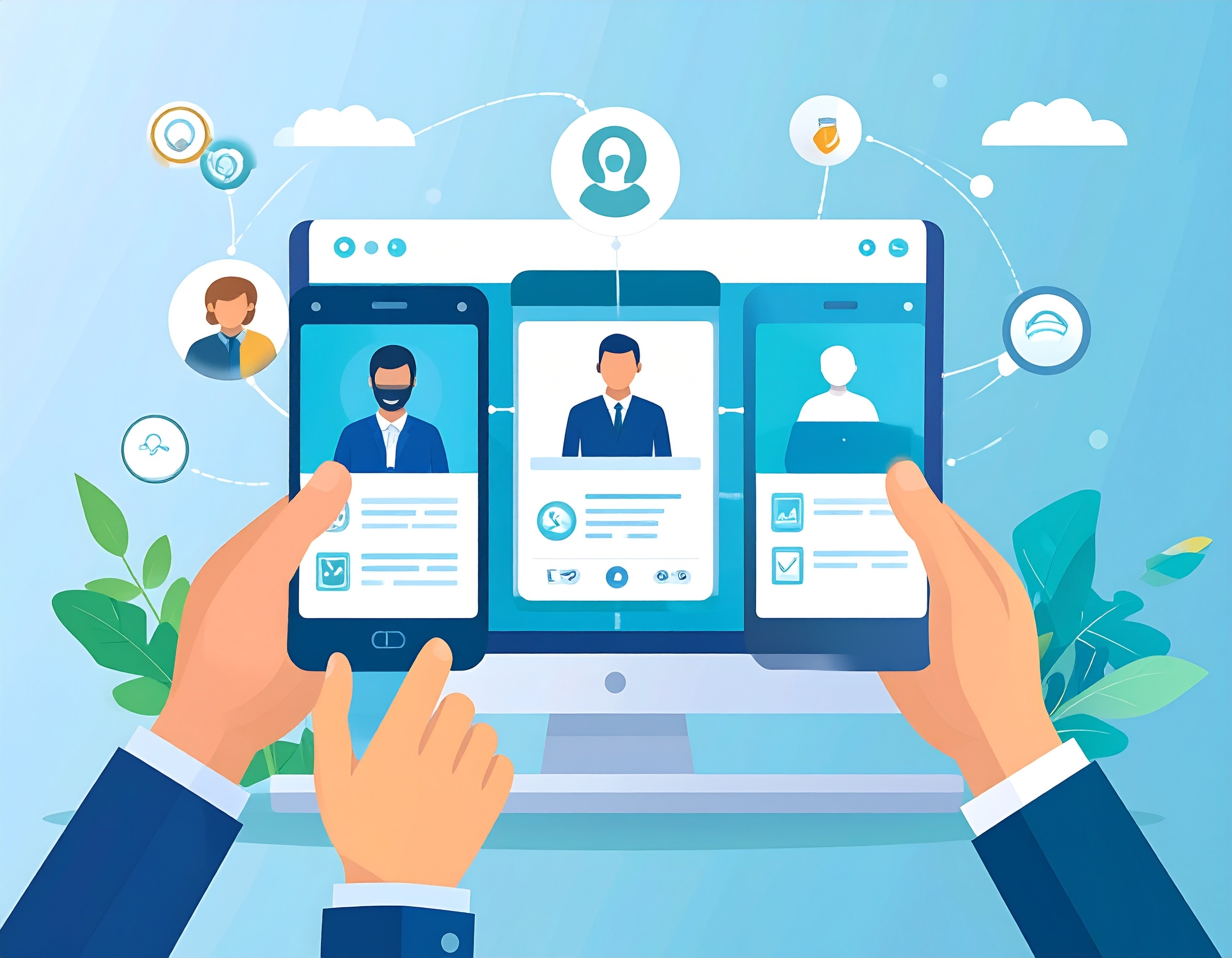 01 JULY 2025
01 JULY 2025
WhatsApp Automation: Transform Customer Service with CRM Integration
Customer communication has changed completely. You can no longer expect customers to write an email, wait on the phone for a customer service executive, or do anything that disrupts their usual workflow.
If your support system has friction, your customers will simply switch.
Today's customers want instant support, and they want it to be personal and convenient. Most importantly, they want it on platforms they use daily.
With over 3 billion monthly active users, WhatsApp is the ideal platform for this.
Understanding the Tools: WhatsApp Business API and CRM
To unlock the potential of WhatsApp in customer service, you need to integrate the WhatsApp Business API with your Customer Relationship Management (CRM) system.
Let's first understand the two core components that make this automation possible.
The CRM
A CRM is like the brain of your customer operations. It stores all important customer information. This includes contact details, purchase history, and every past service interaction. It gives you a complete 360-degree view of each customer relationship.
The WhatsApp Business API
The WhatsApp Business API is an enterprise-grade solution for businesses.
Unlike the standard app, the API doesn't have its own interface. Instead, it acts as a gateway.
It connects WhatsApp's functionality to your existing software stack, like a CRM. This WhatsApp API integration is the foundation for all advanced automation and scalability.
How WhatsApp Integration Transforms Customer Service
When you integrate the WhatsApp Business API with your CRM, you create what is effectively a true WhatsApp CRM.
In this unified system, WhatsApp becomes a source of data and a channel to communicate with customers.
1. Automate Routine Tasks to Free Your Team
One of the most immediate benefits is the ability to automate routine tasks. A significant portion of customer queries are repetitive. Examples include "Where is my order?", "What are your business hours?", or "How do I reset my password?".
By deploying chatbots for customer service through your WhatsApp integration, you can provide instant answers.
This high level of WhatsApp automation deflects many simple queries and frees up your human agents. They can focus on more complex, high-value issues that require critical thinking.
2. Achieve a Single View of the Customer
With a WhatsApp CRM, your agents don't need to switch between different systems to piece together a customer's history.
When a customer messages on WhatsApp, the agent sees everything on one screen. This includes past purchases, previous support tickets, and even recent email interactions.
This comprehensive view means customers never repeat themselves. This leads to faster resolutions. It dramatically improves the customer experience and also opens up the possibility of advanced automation.
3. Enable Proactive Communication
The integration allows your business to shift from reactive to proactive support. Using the rich data stored in your CRM, you can trigger automated and personalised WhatsApp messages. Here are some examples:
- Order and Shipping Updates: "Hi [Customer Name], your order #[Order Number] has just been shipped! You can track it here: [Link]."
- Appointment Reminders: "Hi [Customer Name], just a reminder about your appointment with us tomorrow at [Time]."
- Personalised Offers: "Hi [Customer Name], we noticed you were interested in [Product]. We're having a special offer on it this week!"
This kind of proactive communication keeps customers informed and reduces the likelihood they will need to contact support in the first place.
4. Build Sophisticated Conversational Apps
The WhatsApp API Integration serves as the foundation for building powerful conversational apps. These are far more than simple chatbots. They are sophisticated, agentic AI-driven applications that can guide users through complex processes.
This includes troubleshooting a product, customising an order, or even completing a purchase. All of this happens within the familiar WhatsApp chat interface.
This creates a rich, interactive experience. It's highly efficient for the business and incredibly convenient for the customer.
The Future of Customer Communication
This powerful combination allows you to meet your customers on their preferred channel, automate routine tasks, provide your team with a complete contextual view of every interaction, and proactively manage the entire customer journey.
By creating a unified WhatsApp CRM, you build a more efficient, scalable, and responsive customer service operation that drives satisfaction, builds loyalty, and ultimately, fuels sustainable business growth.
Explore how Kiksy is making advanced agentic AI solutions accessible to businesses of all sizes.
Frequently Asked Questions (FAQs)
What is the best automation for WhatsApp?
The best and most comprehensive automation for WhatsApp is achieved through full integration of the WhatsApp Business API with a CRM.
This setup allows for the most powerful and flexible automation capabilities. This includes deploying AI-powered chatbots for routine queries.
It includes sending automated proactive notifications like order updates. It also includes intelligently routing conversations to the right agent based on CRM data.
What is the difference between WhatsApp API and CRM?
The WhatsApp API is a tool that allows businesses to send and receive WhatsApp messages at scale. It connects the platform to other software.
In contrast, a CRM is the system that stores and manages all your customer data and interaction history.
The key is to integrate them. The API handles the messaging while the CRM provides the rich customer context needed to make those messages personal and intelligent.
How to install WhatsApp CRM?
You can't really "install" a WhatsApp CRM like you would install regular software. What you're actually doing is connecting WhatsApp to your existing CRM.
First, you'll need to get WhatsApp API access through an approved provider.
Then you either pick a CRM that already works with WhatsApp API integration or use a connector tool to link them up.
Once that's done, you set it up so all your WhatsApp chats get saved in your CRM alongside your customer records.
Which is the best AI chatbot for customer service?
There's no single "best" chatbot. The "best" AI chatbot depends on your specific business needs. However, the most effective chatbots for customer service are powered by advanced AI.
They can be deeply integrated with your core business systems. This includes your CRM and order management platforms.
You should look for a chatbot solution that offers excellent natural language understanding. It should have a seamless handover process to human agents. It should be easily customised to your specific business logic.
How are chatbots used in customer service?
Chatbots are primarily used in customer service to provide instant answers for common and repetitive questions.
They can answer FAQs, check order statuses, book appointments, and collect initial information from customers. They can then pass customers to human agents if necessary.
Advanced chatbots powered by agentic AI can resolve more complicated queries by accessing other systems and escalating when necessary.
Kavita Jha
Chief Executive Officer
Kavita has been adept at execution across start-ups since 2004. At KiKsAR Technologies, focusing on creating real life like shopping experiences for apparel and wearable accessories using AI, AR and 3D modeling.
